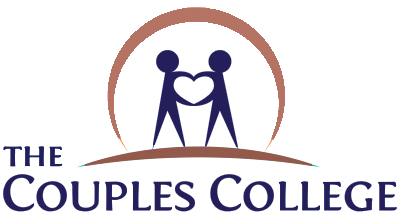
November Couples’ Tip ~ Why We Lie and How to Get Back to the Truth
Check out the full blog and listen to the podcast here: https://www.couplesinstitute.com/why-we-lie/
In Relationship Alive podcast Ellyn Bader PhD, Peter Pearson PhD, and Neil Sattin discuss the following:
- What constitutes a lie?
- Why do we lie?
- Lying between me, myself, and I: Am I really telling myself the truth about my own experience? How well do I know myself? How much am I able to communicate what I know about myself?
- Inviting truth and how to AVOID becoming conflict avoidant: In order for couples to evolve well and enter into a growthful process from the honeymoon phase, it is key to start substantial truth telling early on. Each partner speaks up about things that are important and matter to them, even at the risk of moving into areas of disagreement. Although the early years of differentiation are not always easy, there are many moments of growthful tension. It takes courage not only from the one who tells their truth, but from the partner who is willing and able to truly listen and hear their partner share!
- Lie Invitees: Knowing that lying is often one of those ‘two to tango’ deals, how does the person who’s being lied TO help create the dynamic? Somebody becomes a lie invitee when they do not fully collaborate on the commitment to truth telling. For example, when your partner shares honestly and with integrity with you and you attack them or shame them, they will inevitably think twice about being honest in the future, thus leading to increased deception. So how are you receiving your partner’s honesty? Are you being reactive instead of responsive? Are you being a martyr? Acting above? Playing victim? If so you may actually be encouraging your partner’s lie telling. The BIGGEST self deception that occurs in relationships is the belief that we are victims and not contributors in the distress.
- Truth telling is a collaborative process, so always stay AWARE of your participation in what goes on in your relationship. Ask yourself “what would be required of me to bring more honesty to our partnership?”, “What can I do that would make my partner glad to be with me?”, “How can I be in order to increase ease and fluency in our communication?”. Come clean when you need to, and work towards being willing to SEE and BE SEEN, HEAR and BE HEARD by and with and for each other.
- Come clean with grace and generosity. When you become aware of a place in which you have not been totally honest with your partner, do not rush into confession. There is an art to everything, confessions included. If you are going to express a difficult truth, give your partner a loving heads up. Telling lies/not telling the truth can feel so shaming and heavy that there is a tendency to want to unload quickly and release the guilt as soon as you feel ready to share. This is not advised! It is as if you hit your partner with two arrows instead of one, stinging them once with your news, and second with the selfishness of your delivery. So SLOW DOWN (less in time, but more in tone). Say something like “Hey, I want to share something with you that isn’t easy for me to say”, and then verbally honor that your motivation in telling them the truth is to continue to build the trusting foundation you are both committed to creating in your relationship. This acts as a paradigm shifter- from ‘me and you’ to ‘us’ and helps facilitate your partner’s ability to hear the truth.
- Be Curious not Furious– There is also an art to receiving truth telling. If your partner has shared something with you from a generous and couple centered place, it is good to remember to respond first with “I really appreciate your honesty”. Work together towards a place in which you can respond by staying curious and saying “tell me more”. When and if you recognize ways in which you are either being a lie invitee, or having difficulty receiving your partner’s honesty, share this. Say something like “Honey, I am noticing that I have been doing such and such and that it might be making it hard for you to be honest with me”. By the mere fact of owning, one’s contribution to the patterns, doors will open and fresh air will come into the relationship. You can also experiment together. Say “Look, I know that I have been reactive in the past, and I am really going to try to listen and hear you without demanding anything in this moment”. Then take turns! Give this platform a try and see if it eases or shifts any stuckness in your communication patterns.



